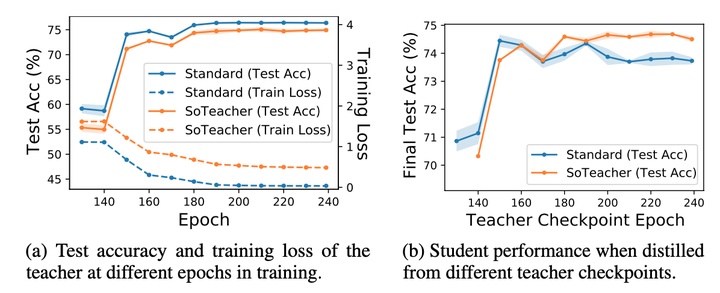SoTeacher: Toward Student-Oriented Teacher Network Training For Knowledge Distillation

Abstract
How to train an ideal teacher for knowledge distillation is still an open problem. It has been widely observed that a best-performing teacher does not necessarily yield the best-performing student, suggesting a fundamental discrepancy between the current practice in teacher training and the distillation objective. To fill this gap, we explore the feasibility of training a teacher that is oriented toward student performance with empirical risk minimization. Our analyses are inspired by the recent findings that the effectiveness of knowledge distillation hinges on the teacher’s capability to approximate the true label distribution of training inputs. We theoretically established that (1) the empirical risk minimizer can provably approximate the true label distribution of training data if the loss function is a proper scoring rule and the hypothesis function is locally-Lipschitz continuous around training inputs; and (2) when data augmentation is employed for training, an additional constraint is required that the minimizer has to produce consistent predictions across augmented views of the same training input. In light of our theory, we propose a teacher training method SoTeacher which renovates the em- pirical risk minimization by incorporating Lipschitz regularization and consistency regularization. Experiments on two benchmark datasets confirm that SoTeacher can improve student performance significantly and consistently across various knowledge distillation algorithms and teacher-student pairs.